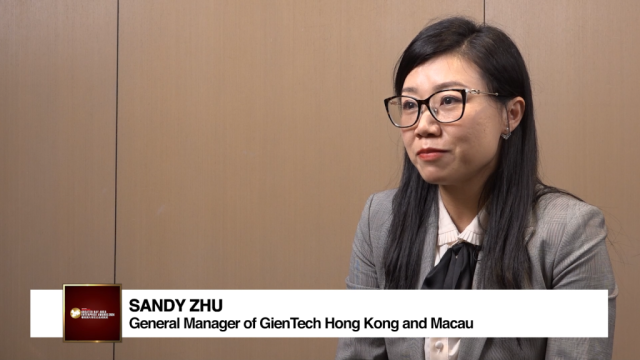An invisible innovation is a successful innovation
By Vincent LeungInnovations should be seamlessly invisible. Not invisible as in it can’t be seen with the naked eye, but invisible so that it’s not noticed if people don’t look for it purposefully. This is especially crucial for Hong Kong’s slow innovation-adopting businesses.
When was the last time you noticed someone specifically because they were wearing prescription glasses? However, if you see someone wearing the Google Glass around, you’ll certainly notice it. The fact that it is noticed is one of the reasons why innovations such as Google Glass failed to tap the mass audiences: because it wasn’t adopted seamlessly.
In order for an innovation to succeed, it needs to integrate invisibly into the society.
Hong Kong's businesses are known to be late adopters of innovations, which can be clearly seen when looking at the city’s laggard digital adaptation. Combined with a conservative culture, any innovation that can succeed here needs to integrate invisibly into this society.
Examples can be found within the smartphone era, which strived through the innovation period and is thriving in the Hong Kong society today. A main cause for this is due to the fact that the invention of the smartphone isn’t something entirely new, but instead a complete modification of what already exists and is widely used: cellphone.
The mass audiences already owned a cellphone and used it frequently. Thus, an innovation that transforms a device that the public is already accustomed to has a chance to be more widely accepted than a newly created device that’s separated from what the audiences already use.
Let’s take a step further back, remember when the iPod was a major hit years back and it virtually eliminated all other music players in the industry? Now, think of how many times you saw people using an actual iPod in the past couple of days. Maybe you’ve seen a handful, or maybe not even one person. This shows that even a revolutionary product can become obsolete when transformation happens, generating new digital innovations or even brand-new product lines.
Most innovations today are now linked to digital initiatives, and this digital innovation is crucial to Hong Kong business’ relevancy and even survival in the industry. Today, the music player is integrated right into the smartphone as a simple application.
Due to the smartphones’ internet capabilities compared to the old MP3 players, downloading music has been simpler than ever before. This directly contributed to the further downturn of the entire CD record industry, showing that digital innovation not only accelerates efficient daily life activities, but also eliminates products and functions that can’t stand the test of time.
With such products becoming irrelevant, corporate stakeholders such as the products’ complementary good manufacturers would encounter major demand curve shift and seize to be in demand, causing a collapse in their whole industry.
Even though Hong Kong’s businesses are slow to adopt digital innovations, this city’s consumers are actually increasingly becoming early adopters of new technologies. An example can be seen with electric vehicles, which fit the description of 'invisible innovation' as they appear just like typical vehicles but all the innovations happen from within.
Elon Musk, CEO of Tesla, himself mentioned in his visit to Hong Kong in January 2016 that this city would be a leader in adopting electric vehicles. The sales of electric vehicles have been booming in the past couple of years in Hong Kong with over 2,000 Tesla Model S sold in 2015 alone, making the city one of the fastest growing market for the company with 10% of its overseas sales residing here.
The adoption rate of electric vehicles here rivals some of the most technologically advanced cities in Europe and the US. This shows two things: 1) Not only is Hong Kong's consumer society ready for more digital innovation and adaptation, but they’ll actually spurge on the products and services if they fit the right criteria, providing huge opportunities for innovative companies; 2) Technologically advanced companies from overseas will continue to tap the Hong Kong market, and if the local businesses don't adapt to more digital innovations, they'll be at risk of losing market share to overseas competitors.
Hong Kong has a conservative business model and may only see threat and risks in adopting new technologies and digital initiatives. In actuality, not only is digital innovation not a threat to a company, it is an opportunity generator and necessary survival tactic for the company.
What do you think the next big innovation will be? Instead of looking at the big ideas, perhaps you can try to look at the items that people are accustomed to, the ones that people don’t notice without trying. Perhaps the next big innovation will boom from what you are already looking at every day.























 Advertise
Advertise









